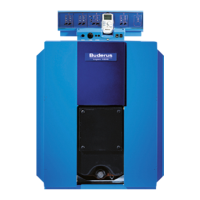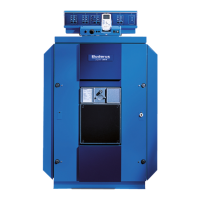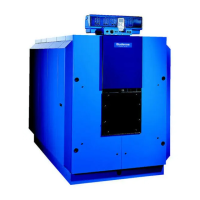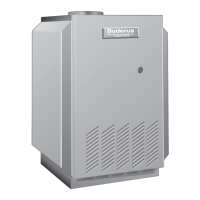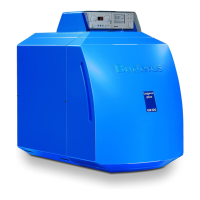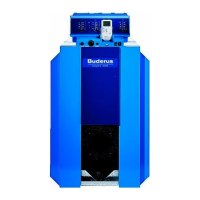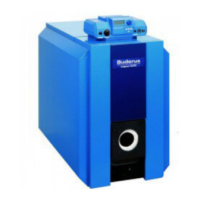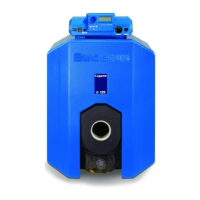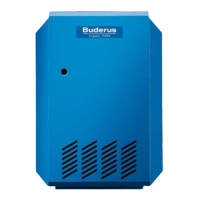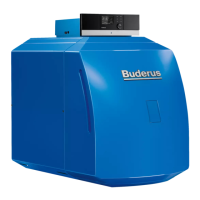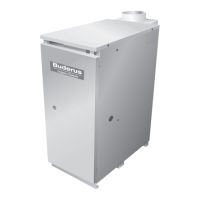4 Regulations and operating conditions
6 720 646 864 (12/2010) – Technical guide Logano GE315, GE515 and GE615
25
4.5 Additional operating conditions for
operation with biogas
The following requirements must be met:
• Operate boiler at constant temperature
• Ensure minimum boiler water temperature of 75 °C
• Do not permit any operating interruptions
• Maintain a minimum return temperature above the dew
point (in this case at least 60 °C), i.e. a return
temperature raising facility is required
• Clean and service the boiler regularly; clean chemically
and treat to preserve if required
Warranty
Due to the highly aggressive properties of biogas, the
warranty is only valid for 2 years. This period differs to
that stated in the General Terms of Sale, Delivery and
Payment.
4.6 Corrosion protection in heating
systems
4.6.1 Combustion air
Where combustion air is concerned, ensure that it is not
heavily contaminated with dust and contains no
halogenated compounds. Otherwise there would be a risk
of damage to the combustion chamber and secondary
heating surfaces. Halogenated compounds are highly
corrosive. These are contained, for example, in spray
cans, thinners, cleaning & degreasing agents and in
solvents. Design the combustion air supply so that, for
example, no extract air is drawn in from chemical cleaners
or paint shops. Special requirements apply to the supply
of combustion air in the installation room (Æ page 58).
4.6.2 Corrosion protection on the boiler water
side
Corrosion in the heating system can be the result of poor
water quality or air-borne oxygen in the system. Negative
pressure allows oxygen to enter the heating system.
Possible causes of oxygen ingress include leaks in the
heating system, regions of negative pressure, an
inadequately sized expansion vessel or plastic pipes with
no oxygen barrier.
If the ingress of oxygen into the heating system cannot be
prevented, we recommend separating the heating circuit
by means of a heat exchanger.
4.6.3 Prevention of corrosion damage
Corrosion damage has occurred if the function of the
heating system is impaired by corrosion. This may
become apparent through blockages, boiling noises, poor
circulation, rust perforations, reduced output or the
formation of cracks. This usually only occurs if oxygen
continually enters the heating water. In order to prevent
this, design the heating system as a sealed system from a
corrosion point of view. If the system is sealed from a
corrosion point of view, the selection of materials used
becomes less significant.
If the system cannot be sealed from a corrosion point of
view, special corrosion protection measures must be
provided by treating the heating water. Alongside the
option of filling the heating system with desalinated water,
the heating water can also have chemicals added to it.
These chemicals either bind the free oxygen or form a
corrosion-resistant coating on the surface of the material.
The pH value of the heating water should be between 8.2
and 9.5. If the heating system does not contain any
aluminium components, we recommend adding
chemicals (e.g. trisodium phosphate) to the heating water
to alkalinise it.
Regular maintenance is required to give the
heating system a long, damage-free service
life. As well as checking the pressure, check
the pH value of the heating water and adjust
it if required. If corrosion protection agents
are used, check the heating water in
accordance with the manufacturer's
instructions.
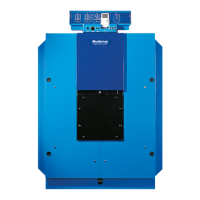
